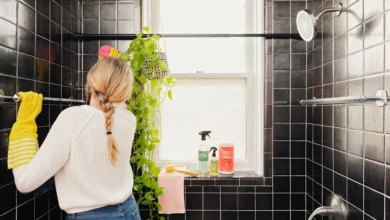Well at least that’s how things worked out for me.
So, if you’re ready for me to show you how to adopt these 10 hobbies for the benefit of your mental health, then let’s get started.
At the end of the article, I also include a number of other hobbies that have also proved effective for people with anxiety so you have quite a few to choose from.
The following 10 hobbies are fun activities that I adopted to manage my anxiety.
You don’t need to introduce all of these 10 activities, to relieve your anxiety.
One hobby is perfect enough.
If then later you decide to add another one that’s a bonus.
I recommend the following step-by step process:
- Step 1: Go through the list below, pick one activity and try it for a month.
- Step 2: Ideally practice for 30 minutes every day or at least for 30 minutes every other day
- Step 3: Record the level of your anxiety on a scale from 1-10, with 10 being the worst, both before you start and after you finish. This will help you track the effectiveness of this activity on your anxiety.
- Step 4: After the 30 days are up, review your anxiety levels and decide whether you will continue with this activity or choose another one and repeat the same process.
1. Writing Expressively
I have intentionally listed writing at the top because I highly recommend to every person with anxiety to try expressive writing as a way of releasing their thoughts and emotions.
Expressive writing is a highly effective anxiety management technique, and in my experience once you start to notice the benefits you are likely to get pleasure from engaging in this activity.
I found that regularly writing about what happened in my childhood and how that made me feel was incredibly healing.
But I also realized that writing about my thoughts, emotions, activities and anxiety levels each day helped me to identify what were my negative repetitive thought patterns and behaviors and thus what I needed to change to overcome my chronic anxiety.
One study in 2016 showed that,
Positive affect journaling (PAJ) was associated with decreased mental distress and increased well-being…less depressive symptoms and anxiety after 1 month and greater resilience after the first and second month.
If you don’t see yourself as much of a writer, don’t worry I didn’t either.
It doesn’t have to be anything complicated. Simply, take a pen and a notepad or a piece of paper and begin writing freely about your worries, fears, pain or traumas.
Write from your heart and soul and express your deepest pain. Don’t worry about spelling, grammar, paragraphs, writing style, or whether it makes sense. Just write for you.
If you later realize that writing is definitely not for you, that’s ok. You will have still benefited a lot from this process.
But you might actually discover a talent that you didn’t even know existed.
open next page to continue reading….




